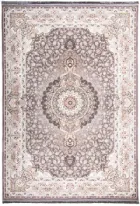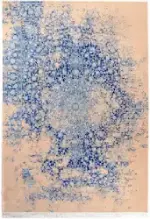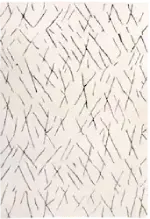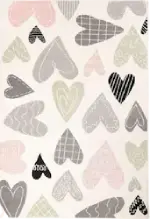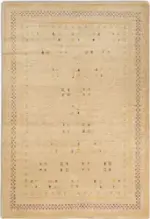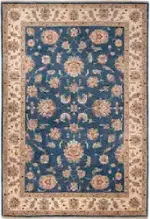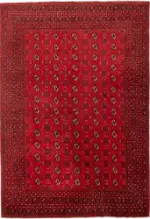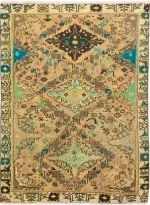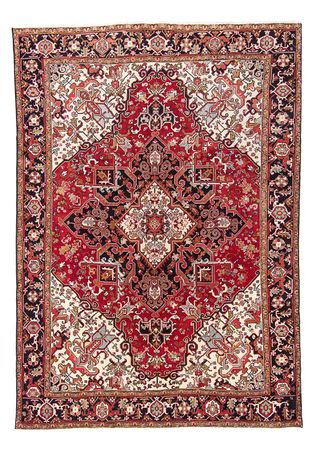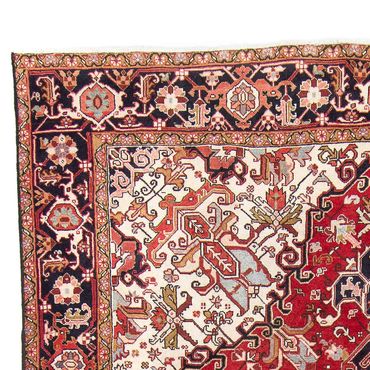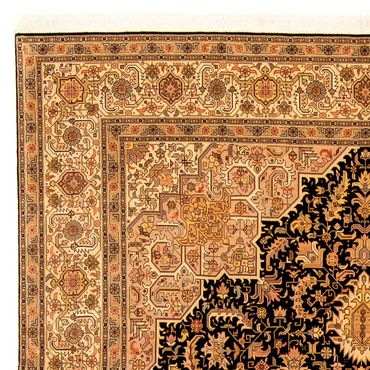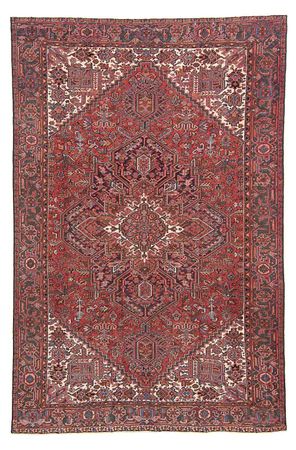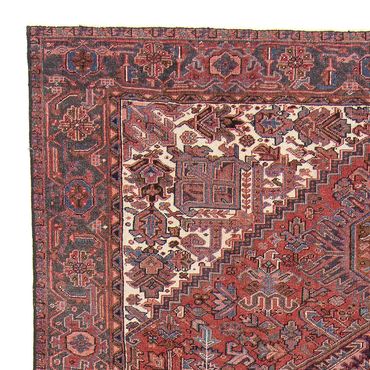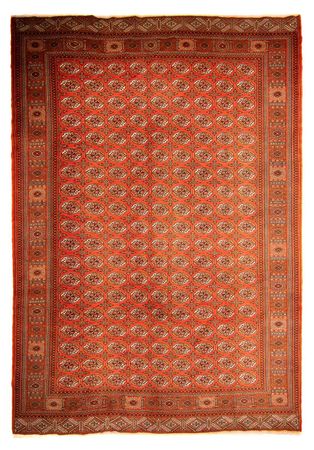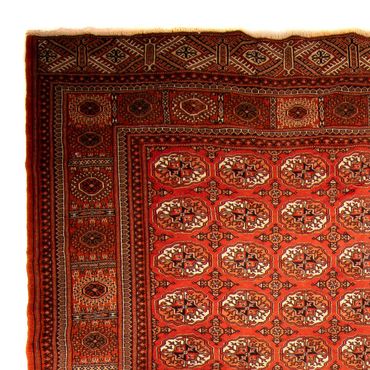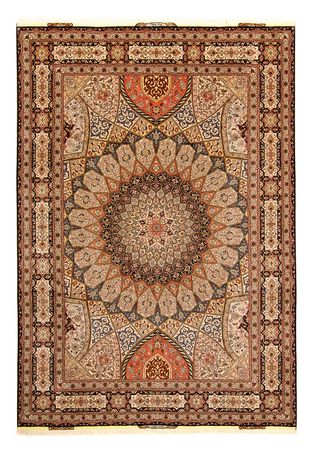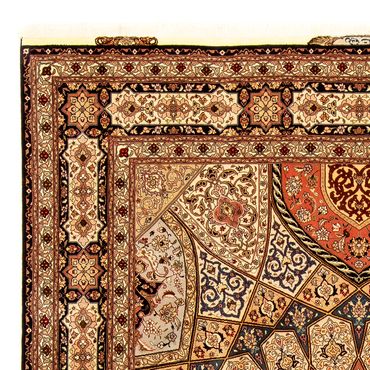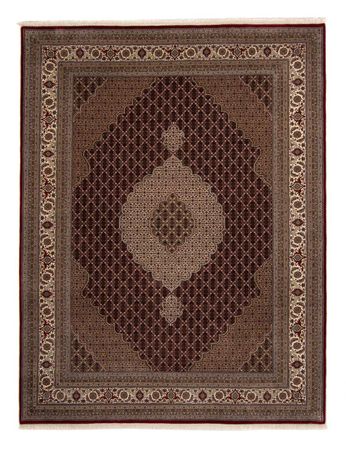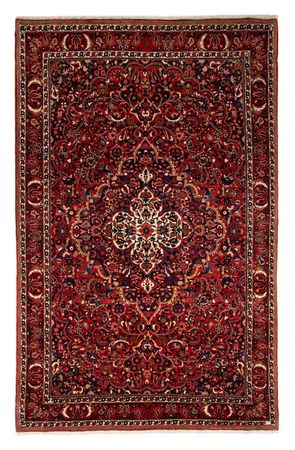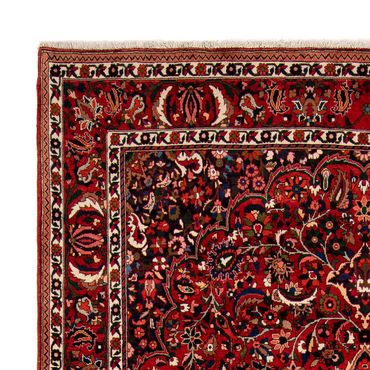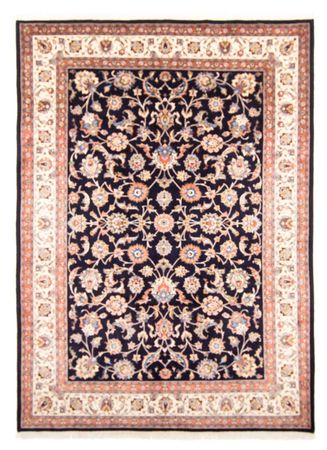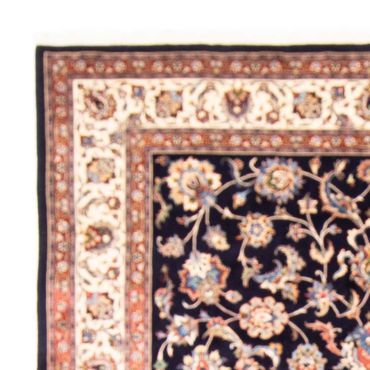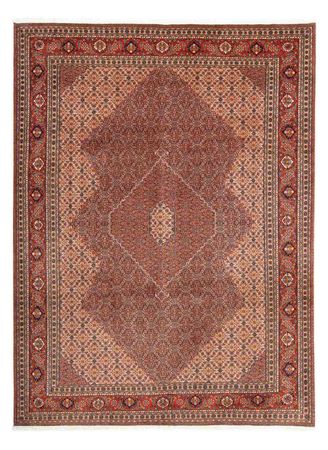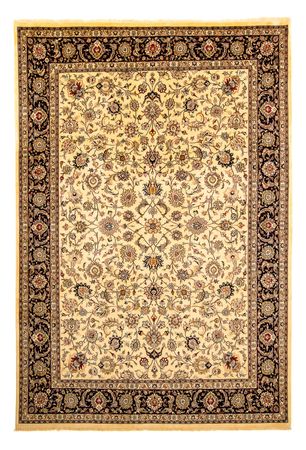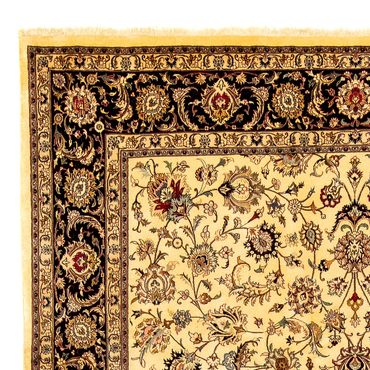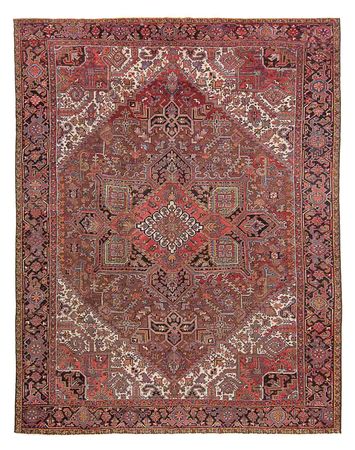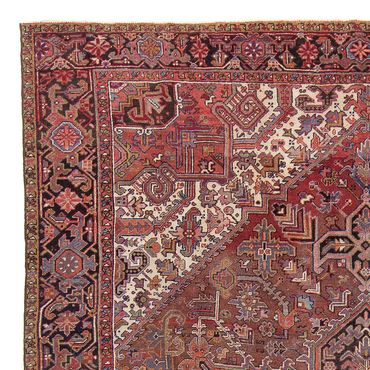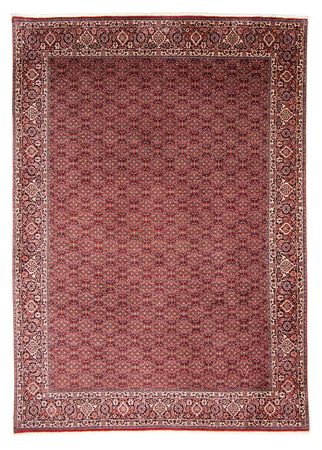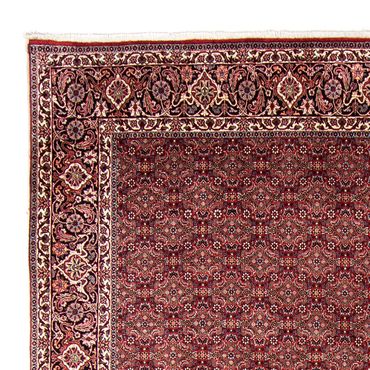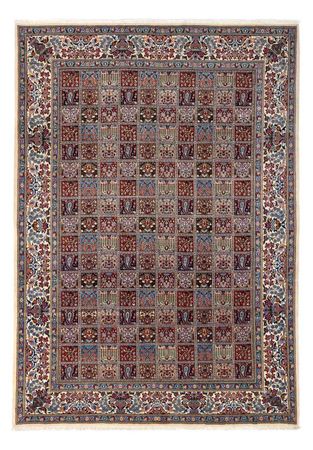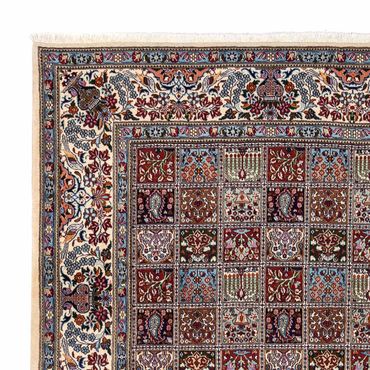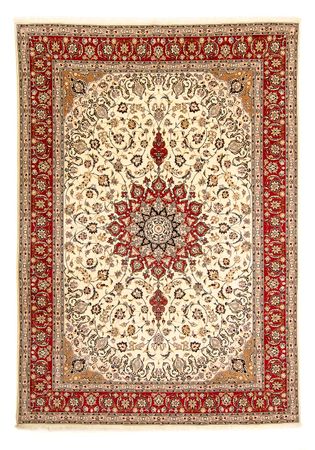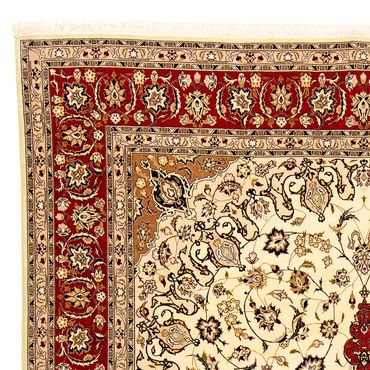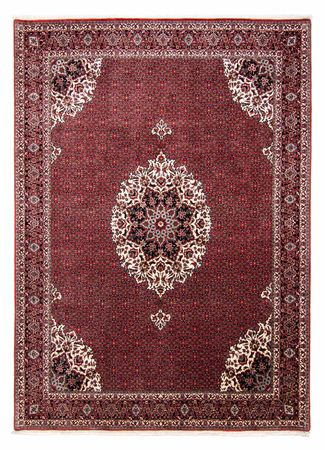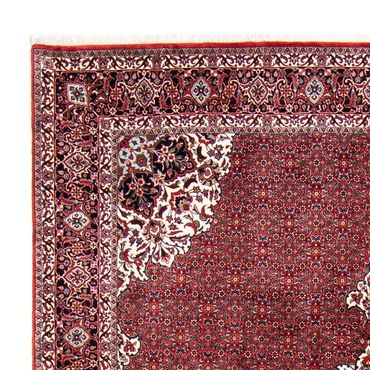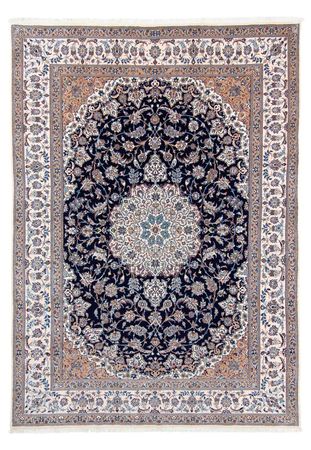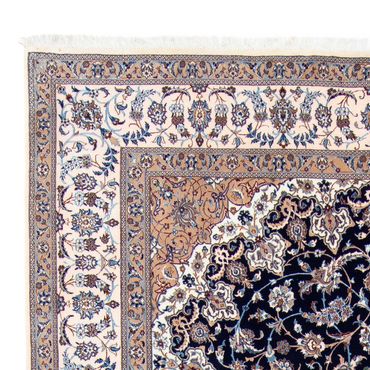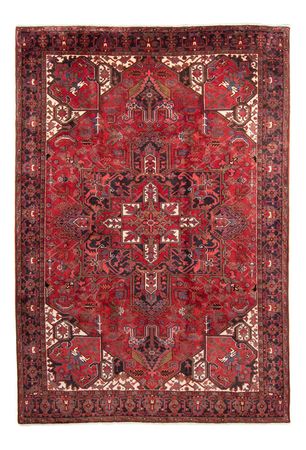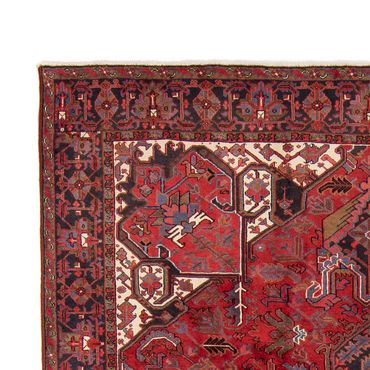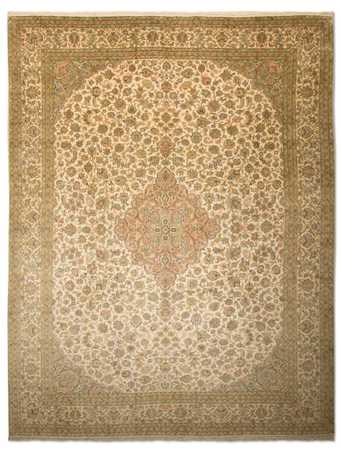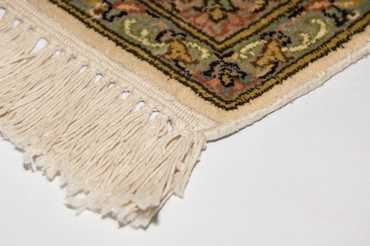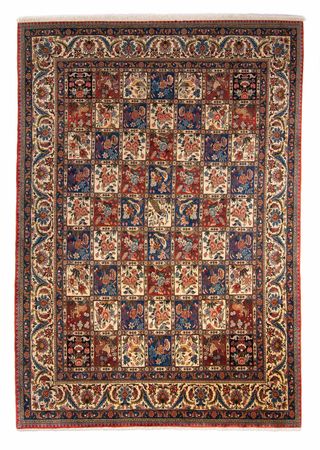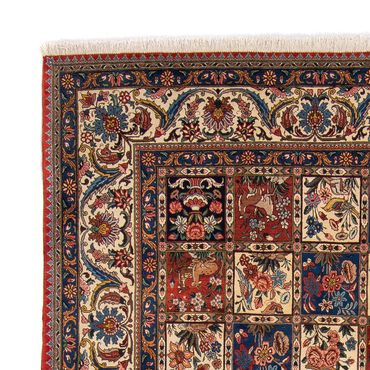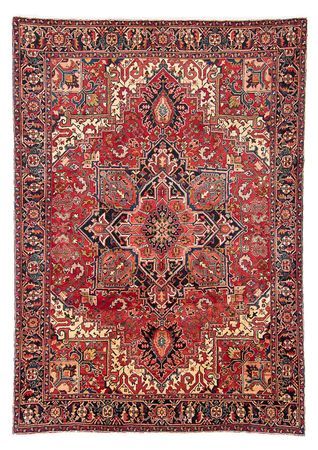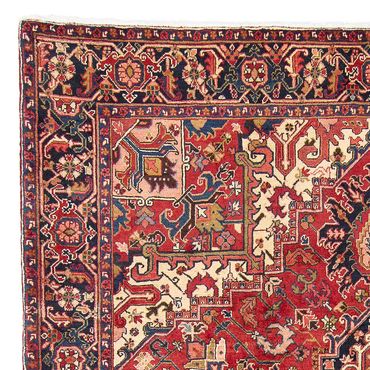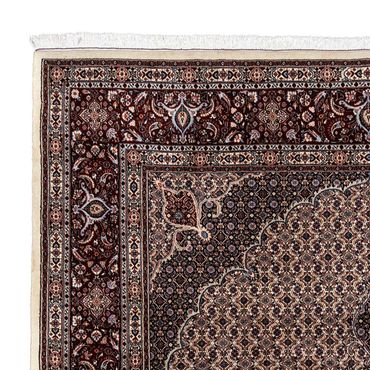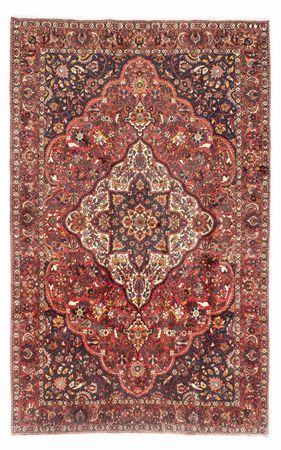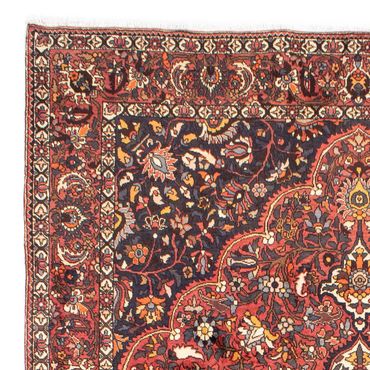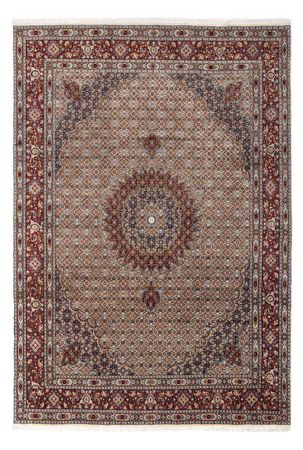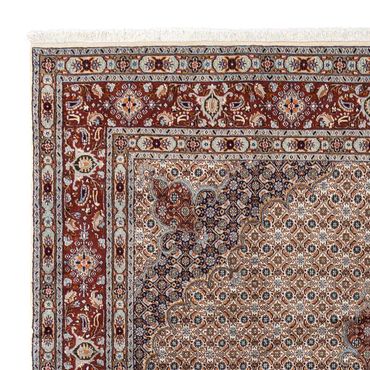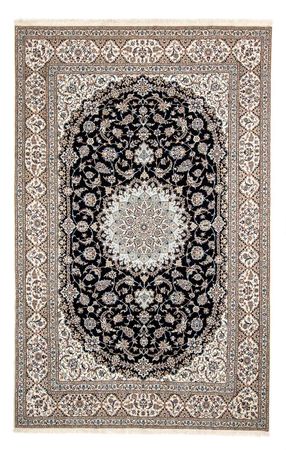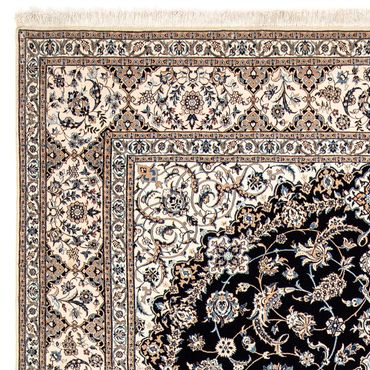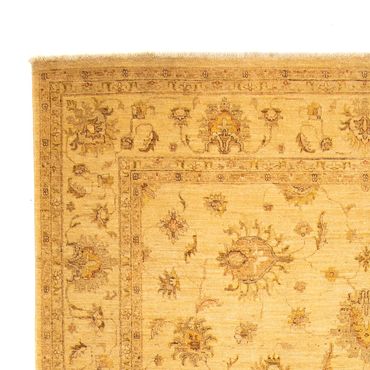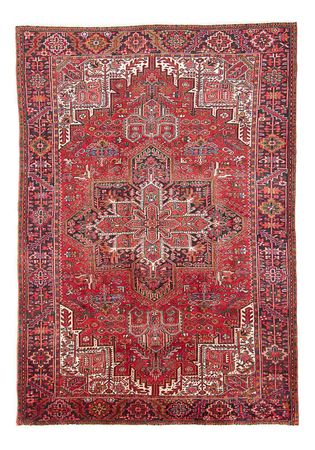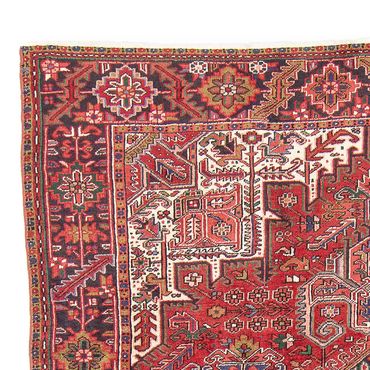- Perser Rug - Nomadic -
334 x 2542,947 US$
- Perser Rug - Tabriz - Royal -
360 x 25411,872 US$
-
- Perser Rug - Nomadic -
330 x 2532,900 US$
-
- Ziegler Rug -
369 x 2703,741 US$
-
- Turkaman Rug -
333 x 2601,269 US$3,150 US$
-
- Perser Rug - Tabriz - Royal -
343 x 25012,113 US$
-
- Perser Rug - Tabriz -
346 x 2529,406 US$17,206 US$
-
- Perser Rug - Bidjar -
339 x 2534,727 US$
-
- Perser Rug - Nomadic -
372 x 2423,898 US$
-
- Perser Rug - Classic -
337 x 2494,830 US$
-
- Perser Rug - Nomadic -
352 x 26510,064 US$
-
- Perser Rug - Nomadic -
365 x 2654,186 US$7,772 US$
-
- Ziegler Rug -
345 x 2523,767 US$
-
- Perser Rug - Classic -
358 x 24912,415 US$
-
- Perser Rug - Nomadic -
350 x 2803,400 US$
-
- Perser Rug - Bidjar -
350 x 24611,042 US$
-
- Perser Rug - Classic -
357 x 2563,959 US$
-
- Perser Rug - Tabriz - Royal -
348 x 2549,083 US$
-
- Perser Rug - Bidjar -
343 x 26011,439 US$
-
- Perser Rug - Nain - Premium -
346 x 2467,864 US$
-
- Perser Rug - Nomadic -
358 x 2482,745 US$
-
- Silk Rug - Kashmir Silk -
335 x 2435,691 US$
-
- Perser Rug - Nomadic -
350 x 2445,160 US$
-
- Perser Rug - Nomadic -
342 x 2453,632 US$
-
- Perser Rug - Classic -
345 x 2535,537 US$
-
- Perser Rug - Nomadic -
326 x 2142,161 US$4,197 US$
-
- Perser Rug - Classic -
347 x 2423,631 US$
-
- Perser Rug - Nain - Premium -
330 x 2099,736 US$
-
- Ziegler Rug -
368 x 2544,038 US$
-
- Perser Rug - Nomadic -
350 x 2513,053 US$
-
Buying rugs online – your guide to making the perfect choice
Rugs complete rooms by giving them warmth, texture, and aesthetics. They are always a beautiful addition, no matter what your preferences are. Whether modern and luxurious or cozy and inviting, they have always been used to make statements and to transform or harmonize interiors from the ground up.
We live in a time when trends are constantly changing. A timeless rug can withstand these changes and is therefore a popular and important decorative element that no household should be without. However, choosing the “right” one can be overwhelming due to the seemingly endless selection of materials, colors and patterns.
This guide is designed to provide you with all the information you need to buy the perfect rug and help you make the right choice.
Good to know: an overview of the main types of rug.
Oriental rugs
Oriental rugs are a symbol of centuries-old craftsmanship and tradition. Traditionally hand-knotted in countries such as Iran, Afghanistan and Turkey, they are known for their vibrant colors and complex patterns, which often include floral motifs, geometric shapes and symbolic images. Each Oriental rug reflects the artistry and culture of the region from which it comes. Often made of high-quality materials such as wool or silk, they can last for generations if well cared for, bringing elegant sophistication and history to any room.
Persian rugs
Persian rugs are valued as works of art worldwide. They are characterized by detailed ornaments, fine materials and natural colors derived from plants and minerals. In addition to their extraordinary beauty, they shine through their remarkable longevity. They blend in with both classic and modern interiors and give every room a luxurious ambience.
Unlike Oriental rugs, a collective term for rugs from different regions of Asia, Persian rugs are characterized by specific techniques, patterns and regional styles of Iran.
Modern rugs
Modern rugs offer a fresh and contemporary alternative to traditional designs. They impress with minimalist structures, abstract forms and a color palette ranging from neutral to bold tones. They often incorporate elements of the modern art movement, which is characterized by reduction, abstraction and experimentation with forms and colors. A wide range of materials can be used to make them, including natural fibers such as wool and cotton, as well as synthetic fabrics that provide additional durability.
They fit perfectly into contemporary living spaces, complementing any interior in a stylish and functional way. There is something for every taste and style, in line with the creative freedom that also characterized the modernist era.
Kids' rugs
A kids' rug is specially designed with the needs and interests of children in mind. It is characterised by cheerful colors and an appealing design; often featuring patterns or motifs that stimulate the imagination and invite children to play. They also look cosy and relaxed, creating a comfortable environment.
The rugs are usually made of durable, easy-to-clean materials to withstand the lively activity in children's rooms. They not only provide a casual playing surface, but also help create a welcoming and inspiring space.
Runners
Runner rugs are long, narrow rugs that are ideal for use in hallways, entryways or as bedside rugs due to their shape. They are a practical way to accentuate these spaces while also protecting floors in high-traffic areas. Runners come in a variety of styles, from traditional to modern, and are often made of durable materials to withstand daily wear and tear.
Outdoor rugs
Outdoor rugs are specially designed to be used outside, combining style and function. They are extremely durable, making them ideal for balconies, terraces and garden areas, and are usually made of robust synthetic materials such as polypropylene, which are both dirt and water repellent and can withstand UV radiation without fading.
Thanks to their resilient nature, outdoor rugs can easily withstand changing weather conditions and are also easy to clean – simply hosing or wiping them down is enough. They are available in a wide range of colors and designs, so they can be easily matched to your outdoor decor. Whether you are looking for a subtle design or an eye-catching decor, outdoor rugs are a clever way to make your outdoor space inviting.
High-pile rugs
High-pile rugs, also known as “shaggy rugs”, have particularly long, supple fibers that give them a fluffy and comfortable texture. The high pile, usually with a fiber length of over 1.5 cm, makes walking on it an extremely sensual experience. They look particularly good in living rooms and bedrooms, and are perfect for walking on barefoot. They are great for spending time on the floor, whether it's reading, playing or relaxing.
However, this type of rug requires a little more intensive care. Regular vacuuming is important to effectively remove dirt that can settle deeper in the rug. Despite these higher maintenance requirements, shag rugs are a popular choice due to their high level of comfort.
Short-pile rugs
Short-pile rugs have low piles, usually less than 1.5 cm in height. These rugs ensure a smoother and firmer surface, making them particularly durable and easy to care for. Their hard-wearing nature makes them ideal for high-traffic areas such as hallways, dining rooms or entryways, where a higher level of resilience is required.
They are known for their crisp, defined texture, which allows patterns to be displayed with precision without appearing overbearing; as a result, they are often available in a variety of decorative styles.
One major advantage is that they are easy to care for. Stains can be removed more quickly because they cannot penetrate deep into the pile. This makes short-pile rugs not only easy to care for, but also hygienic and durable.
Materials: From fluffy to firm
New wool
Sheep's wool is one of the most traditional and popular materials used in rugs. Extracted from the first shearing of sheep, it is particularly soft and durable. It is valued for its natural thermal insulation and ability to regulate moisture, which contributes to a relaxed indoor climate. It is also dirt-repellent, easy to clean by gently dabbing with a cloth, and retains its shape even under heavy use.
To keep the fibers and colors in pristine condition, you should have your rug professionally cleaned at least every few years.
Silk
Silk rugs are characterized by their fine, smooth texture and natural shine, which makes patterns come to life. They allow for extremely detailed arrangements and give interiors a luxurious, elegant flair. Despite their delicate structure, they are durable and dirt-repellent, but require gentle care.
Silk rugs are suitable for representative rooms, as they are more sensitive to moisture and heavy wear. They are particularly suitable for those who value exclusivity and elegant design.
Polyester
Polyester is a versatile material that is characterized by its resilience and uncomplicated nature. Rugs made of polyester are color-fast, stain-resistant and retain their shape even with intensive use. Thanks to modern manufacturing processes, they are available in a variety of colors and styles, so they can be seamlessly integrated into different interior styles. They are an affordable option to natural fibers.
Polypropylene
As a material, polypropylene is highly durable and practical. Rugs made of this material are dirt and water repellent, making them ideal for heavily used indoor and outdoor areas. They are long-lasting, colorfast and resistant to stains.
With a wide range of colors and patterns available, they are an affordable alternative to natural materials. Despite their synthetic origin, they are surprisingly soft to the touch and are particularly suitable for households with children or pets.
Cotton
Cotton is a natural, versatile material that is often used for rugs. Its softness and lightness make it particularly suitable for bedrooms and children's rooms, as it creates a warm, secure atmosphere while also being durable enough for everyday use. In addition, the material is available in a wide range of colors and patterns and is pleasant to the touch.
The hypoallergenic properties of the fiber are particularly beneficial for allergy sufferers. Thanks to its special nature, it is both natural and versatile. If a stain accidentally occurs on the rug, it can be easily cleaned and is usually washable – either by machine or by hand, depending on the size and design.
Jute & Sisal
Jute is a natural material made from the stems of the jute plant. The rugs are characterized by their earthy, natural look and are an excellent match for environmentally conscious and nature-loving living concepts. Although jute rugs are softer than sisal rugs, they still have a substantial firmness that makes them suitable for living rooms or bedrooms. With their cozy, natural look, they create a bright and airy feel and are also easy to care for, as long as they are used in less humid rooms.
Sisal, which is made from the leaves of the agave plant, offers a much firmer and more structured surface. Sisal rugs are extremely stable and durable. Their rustic, natural look is perfect for minimalist, modern interiors. They are also low-maintenance and resistant to wear and tear, making them particularly popular with households looking for durable rugs.
Our bestsellers: the most popular rugs by category
Category | Description | Country of origin | Material |
Persian rugs | Hand-knotted rug with typical patterns and colors from Iran | Iran | wool, silk |
Rugs that have been hand-knotted and are available in different patterns and colors | Various countries | wool, silk, cotton | |
Solid, hand-knotted rugs with geometric patterns and bold colors | Iran | wool | |
Single-color or simply patterned rugs made by nomads in Iran | Iran | wool | |
Hand-knotted rugs with vibrant patterns and colors from Afghanistan | Afghanistan | wool | |
Rugs with a robust structure and striking patterns | Iran | wool, cotton | |
Rugs with elegant patterns and a cozy texture, hand-knotted in Nepal | Nepal | wool, silk |
“Which rug suits my interior style?”
Country house style
The country house style reflects warmth, coziness and a connection with nature. Rugs that complement this style are typically made of materials such as wool or sisal. The colors are dominated by soft earth and natural tones such as beige, ochre, brown, sage, olive, but also white, soft gray or delicate pastel colors, which create a calm and inviting atmosphere.
Popular here are rugs with floral patterns reminiscent of English gardens or rustic patchwork designs that create a cozy and rural atmosphere. They harmonize perfectly with the characteristic wooden furniture of the country house style and complement soft textiles such as linen or cotton.
A country-style rug can work well as a focal point, especially in rooms with lots of light and wood. To emphasize the rural flair, coarser textures can also be chosen to underline the uncomplicated character of the country house style.
Scandinavian style
The Scandinavian interior design style is known for its clean, minimalist look and attention to detail. Rugs in light colors that complement this style are also often neutral in white, gray, beige or soft pastels. They are characterized by simple aesthetics and unobtrusive contours. Flat-woven rugs are popular because they do not clutter up the room, but rather subtly complement it.
Natural fibers go well with this style. Simple geometric shapes or striped patterns can also perfectly complement the ambience by presenting clear lines and a calm color palette. In rooms furnished in a Scandinavian style, which are often dominated by wooden floors and light-colored furniture, these rugs create soft accents and ensure a harmonious overall look. They emphasize functionality and a restrained look that is characteristic of this style.
Retro style
The retro style, inspired by the vibrant designs of the 60s and 70s, is characterized by bold colors and daring illustrations. Suitable rugs for this style are therefore often in eye-catching colors such as orange, green or brown and show large, daring patterns or geometric shapes. Circular abstractions, psychedelic designs or vibrant graphic prints are typical and reflect the playful and experimental spirit of the era. High-pile rugs in bold colors can make a striking statement in a retro-inspired room, while also providing a sense of luxury and comfort.
Selecting the right retro style can also be about choosing an element that will energize the room and give it personality. Individual pieces perfectly complement vintage furniture, bright wall colors and other decorative elements. They can serve as the focal point of a room or as a colorful contrast to neutral furniture pieces. A retro rug is therefore not just a floor covering, but an essential element that highlights the aesthetics and character of the retro living style.
Oriental style
Oriental rugs symbolize the quintessence of traditional craftsmanship. They are often rich in details that have been passed down for centuries. They are hand-knotted in countries such as Iran, Turkey and Afghanistan and are known for their intricate patterns and use of vibrant colors. Each rug tells a story, whether in the form of symbolism, motifs or special dyeing techniques.
These decorative items are available in a variety of styles, from traditional medallion-based designs to modern interpretations with simplified illustrations. Made from high-quality materials such as wool or silk, they can last for generations with proper care. An Oriental rug goes well with many different home styles, from classic to modern, and brings elegance to any room. These rugs are excellent for people who want a combination of art, culture and classic design in their home.
Harmony – skillfully using color and design
The color of a rug has a significant influence on the charm and atmosphere of a room. Depending on where it is placed – whether in the entrance, bedroom or living room – the color scheme should be carefully coordinated.
Light tones such as ice blue or cream make rooms look larger and more open, while darker shades emphasize depth and provide a sense of security. The right color can thus not only positively influence the ambience, but also the spatial perception. Therefore, carefully consider which rug color matches the dimensions and furnishings of your room. A neutral rug can make the selection easier, especially if you plan to rearrange the furniture or change the decoration regularly. On the other hand, a striking rug in red or blue can serve as a statement piece and enrich your interior with a striking accent if the furnishings are planned for the long term.
Many interior designers advise choosing a rug color based on the furniture. For example, if you have a sofa in a rich green or purple, a subtle rug color would harmonize with the overall look. However, if you have a light-colored or unremarkable couch in the room, a brightly colored rug, such as a vibrant yellow or green, can become the central eye-catcher.
In addition to the color, the design of the pattern also plays an important role. It gives a room structure and personality. Geometric patterns look modern and clear, while floral and oriental designs create a cozy and classic environment. In smaller rooms, large-scale motifs can create visual width, while small-scale ornaments tend to come into their own on larger surfaces.
Opt for a subtle decor if you want the rug to blend in harmoniously with the background, or choose eye-catching motifs to create a striking highlight. Ultimately, it always depends on whether it matches the existing textiles and furniture to create a coherent overall picture.
How do I determine the right size?
Whether round or rectangular, choosing the right size of rug is essential to creating a harmonious and coherent room. It just doesn't work if you have a large couch in the living room and a tiny rug underneath it. That's why we want to give you a few helpful tips to help you determine the preferred dimensions for your room.
Living room – the centerpiece
Living room rugs come in many varieties and often form a harmonious unit with the sofa set. It is desirable for the rug to match the width of the sofa and to extend about 15-25 cm on each side.
The most common standard sizes (in cm) are:
300 x 400 cm: perfect for very large living rooms, where the rug fits under the entire seating area
340 x 240 cm: suitable for larger living rooms, where the rug encompasses the sofa set and additional seating
300 x 200 cm: one of the most common sizes, suitable for medium-sized living rooms, where the rug fits under the sofa and coffee table
230 x 160 cm: good for smaller living rooms or in front of a couch
200 x 140 cm: more suitable for smaller rooms or as an accent or runner rug
170 x 120 cm: a smaller size, often used as an accent rug or in combination with other furniture
Tips:
Match the color of the sofa
Place the seating furniture on the rug
Match the size of the rug to the size of the room
In small rooms: center the rug or place only the front edges of the furniture on it
Dining room – table and rug
The size of the dining room rug should be coordinated with the size of the dining table. To ensure that the chairs are still on the rug when pushed back, the rug should extend at least 60 cm beyond the edge of the table.
Tips:
should not overwhelm the room or make it appear too small
larger rooms allow for larger rugs
round rugs go well with round dining tables, while rectangular ones go better with long tables
choose a low-maintenance rug; especially with frequent use, to make it easier to remove stains
Bedroom - cozy retreat
Rugs in the bedroom create a calm aura. Long-pile or wool rugs are particularly suitable for creating warmth and comfort. If you prefer a rustic touch, you can opt for sisal or jute rugs.
Tips:
Use non-slip underlays, especially for smooth floors
The rug under the bed should extend far enough around the bed to make it usable all around
Alternatively, runners can be placed next to or in front of the bed to set accents.
Hallway – perfect for runners
Hallways are high-traffic areas, so durable, easy-care runners, e.g. made of dirt-repellent materials such as plant fibers or synthetic fibers, are particularly suitable. For a more elegant alternative, wool runners are not only durable, but also comfortable and appealing.
Tips:
Leave a gap of 10-20 cm from the walls, use
use non-slip backing material or a rug underlay
Take doors and obstacles into account to ensure freedom of movement
These are the common standard dimensions:
180 x 60 cm
200 x 70 cm
250 x 80 cm
300 x 80 cm
200 x 90 cm
300 x 90 cm
These dimensions are designed to fit well into narrow, elongated areas such as hallways or in front of kitchen cabinets. The length varies depending on the size and shape of the room, while the width is usually between 60 cm and 90 cm.
Note: In addition to the standard dimensions, we also offer variants in individual and unique formats. This way, you are guaranteed to find the right runner that exactly meets your specific requirements and proportions.
Relaxed search, better find - convenient online purchase
Take your time for your online purchase. If you already have a specific idea of what look you prefer, what material the rug should be made of, and you are clear about size and color(s), you can use the corresponding search option for the purchasing guide to narrow down your search.
With just one click, you will receive a variety of options - from traditional oriental rugs to modern designs in various colors, shapes, sizes, styles, motifs, materials, manufacturing techniques, countries of origin and knot densities. Take some time to make a manageable selection first.
Variety - confidently navigated
With so much choice, it is crucial to make a well-thought-out selection. There are many rugs, and the opportunity to buy rugs online at a low price as well. But the art of finding the “right” rug is mastered by only a few. An essential aspect lies in the trust that you place in the respective shop, because when you buy online, you can neither touch nor see the product directly. Therefore, you should take the time to read the product descriptions carefully and look at the pictures in peace.
Your advantages at Morgenland ✓
With decades of tradition and expertise, we offer floor textiles for every taste and every room. If you want to buy rugs without worries, we are your first choice. Whether vintage, colorful rugs, hand-woven, patterned rugs, runners or round rugs, to name just a few – with us you are guaranteed to find the right one for your four walls. We also have special rugs for the kitchen, hallway, children's room or dining room.
Free delivery and collection ensures that you can order online without risk. In addition, we offer you a 31-day right of return so that you can decide in peace whether the new addition suits you. Choose from our wide range of high-quality rugs, be inspired and look forward to a very special feeling under your feet.
FAQ
1. How do I choose the right size for my room?
Measure the room and the furniture carefully. In the living room, the rug should ideally be under the front feet of the seating furniture. In the dining room, it should be large enough to hold the chairs when they are fully extended. For small rooms, a rug that does not dominate the room is recommended, while larger rooms can also accommodate larger rugs.
2. What materials are best suited for different rooms?
For living rooms and bedrooms, wool rugs are ideal because they are soft and cozy. In high-traffic areas such as hallways or kitchens, robust materials such as sisal or synthetic fibers are suitable because they are durable and easy to clean. Silk rugs are more suitable for less-used rooms because they are relatively delicate.
3. What care is needed?
Regular vacuuming is the key. Stains should be dabbed immediately with a clean cloth, not rubbed. Use special cleaning agents depending on the material. Wool rugs should be professionally cleaned from time to time to maintain their quality.
4. How do I prevent the rug from slipping?
Use a non-slip rug underlay. This not only ensures safety but also extends the life of the rug by protecting it from excessive wear.
5. Are rug suitable for allergy sufferers?
Yes, certain rugs are suitable for allergy sufferers. Choose rugs made of hypoallergenic materials such as wool or synthetic fibers that do not contain any allergens. Regular cleaning is important to minimize dust and allergens.
6. What types of rug are best for homes with pets?
Choose durable and easy-to-clean materials such as synthetic fibers or flat-woven wool rugs. Avoid high-pile rugs, as pet hair and dirt collect more easily there.
7. How does a rug influence the acoustics and atmosphere of a room?
Rugs absorb sound and thus reduce noise levels. They also contribute to thermal insulation and create a cozy, inviting atmosphere. In large rooms, they prevent echoes and improve room acoustics.
8. How long does a good rug last?
The lifespan of a rug depends on the material, workmanship and care. High-quality wool rugs can last for decades with good care. Synthetic fiber rugs are usually less durable, but can still last for many years if cared for properly.
9. Can a rug be laid over underfloor heating?
Yes, most rugs can be placed over underfloor heating. However, make sure that the rug is not too thick to allow the heat to penetrate. Choose materials such as wool or special rugs that are suitable for underfloor heating.
10. How do I find a rug that matches my interior style?
Look for colors, patterns, and textures that are reflected in your room. For a minimalist style, simple, monochromatic rugs work well, while colorful or patterned options are ideal for eclectic or traditional interior styles.

